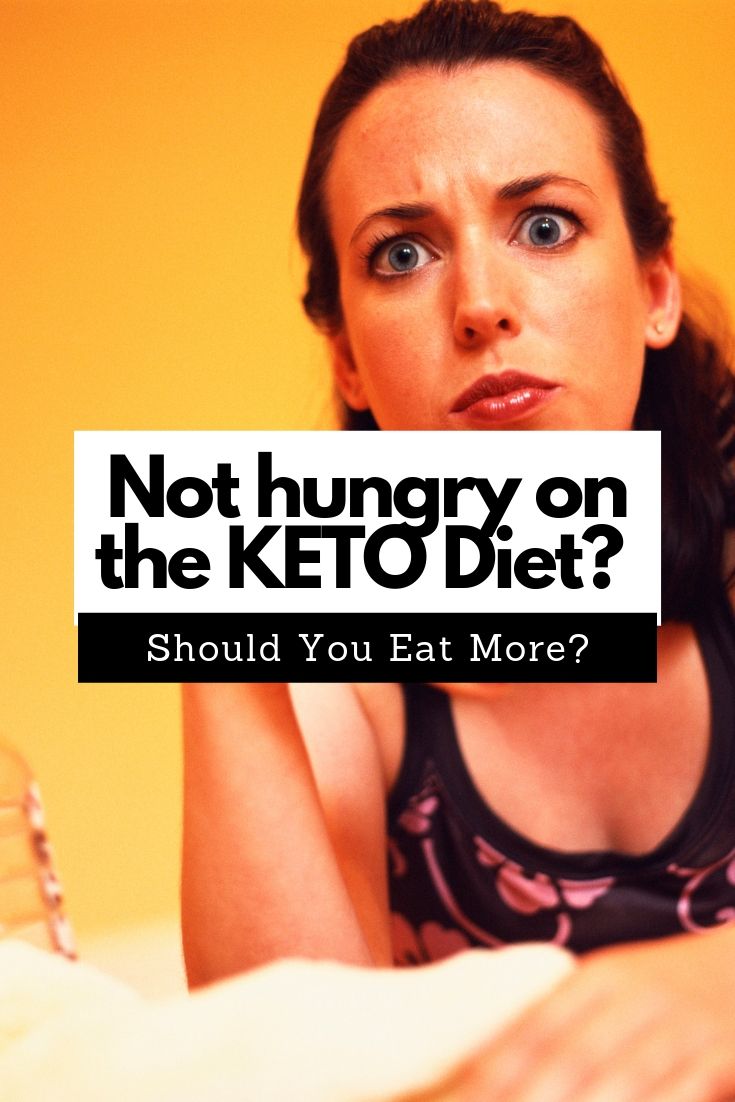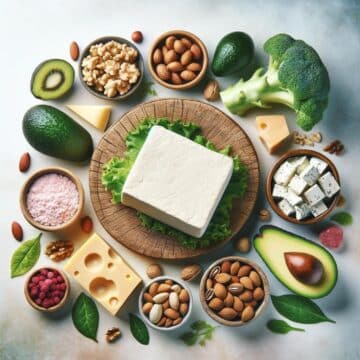The twenty-first century is undoubtedly marked by an increase in awareness regarding what we choose to eat. More and more people are becoming interested in clean, healthy living as a way to promote well-being and increase life expectancy. And fortunately, we don’t have to worry about running out of options ever again.
There are plenty of diets and meal plans nowadays which serve to fulfill various fitness goals. Some examples include the Paleo diet, and, of course, the keto diet. The latter is by far the most controversial in this day and age, but the truth behind it is that it’s also one of the most effective ones. Let’s find out why.
How Keto Suppresses Appetite
The ketogenic diet, also known as the keto diet for short, is based on the increased consumption of natural fats and moderate amounts of protein, while at the same time drastically cutting back on carbohydrates. This puts your body in a state of ketosis, which means that it starts using pure fat to fuel itself.
This primarily happens because you are no longer getting glucose from all those carbs, so you need to be energized by something else. For this reason, the keto diet is beneficial for weight loss purposes. But there is more to it than that. Recent studies show that the ketogenic diet also reduces hunger and appetite, but how does that happen exactly? Let’s find out.
Low Ghrelin Levels
It’s no secret that our bodily functions are carefully regulated by a variety of hormones. This naturally includes eating and digestive patterns as well. Sudden hunger pangs are a clear indication that something isn’t working right on this level, and thus needs regulating. But which one should we blame in this case? The answer is ghrelin.
Ghrelin, also known as lenomorelin, is a hormone produced by the gut which is in charge of signaling the brain when it’s time to eat. For this reason, it has also been dubbed as “the hunger hormone”. Just like leptin resistance, obese people struggle with increased production of ghrelin, which stimulates them to overeat.
Regular diets stimulate its production, which is why most of them ultimately fail in keeping off the lost weight in the long run. This is where the ketogenic meal plan intervenes. By its very nature, it does not increase ghrelin levels in the body while you consume your food, which means that you won’t be inclined to binge on anything.
Induced Satiety
Another detrimental aspect of traditional diets is the fact that they also reduce the levels of satiety peptides, such as peptide YY and cholecystokinin, in the body while simultaneously increasing the number of hunger hormones. If this sounds like a recipe for disaster, that’s because it is. You might even end up feeling full for not even five minutes after a meal.
Fortunately, the keto diet can help in this respect as well. At its core, it based on satiety-inducing ingredients such as healthy fats and protein. On the one hand, by consuming ingredients such as grass-fed butter, ghee, or coconut oil, your meal will be digested slowly, which leaves you feeling fuller for more extended periods of time.
And on the other hand, everyone knows that protein is the best source of instant satiety. Seeing as how this meal plan doesn’t restrict your intake too much, you will be able to nourish your body and suppress unnecessary cravings in no time at all. Just be careful not to go overboard, or your effort will be in vain.
Metabolic Boost
Knowing what foods to eat and which ones are off-limits is an integral part of the approach, but so is not worrying about their calorie counts. Unlike other restrictive meal plans, this is not an element of interest that you need to consider. Instead, focus on eating until you feel full and avoid snacking too often.
The state of ketosis itself is a natural metabolic booster, which means that you will burn fat faster than before once you enter it. Furthermore, you will turn all your adipose tissue into ketones, which fuels your body better than glucose. Thus, you will feel more energized overall, and you will be ready to take on the world.
Regulating your metabolism plays a big part in doing the same for your appetite. Due to irregular dietary choices, your biological mechanisms might have gotten a bit mixed up, but ketosis is the perfect solution to get everything back on the right track. Not only will you beat your cravings to the curb, but you will feel better for it too.
Final Thoughts
The ketogenic diet might be controversial due to its specifications, but it is one of the most effective ones when it comes to immediate results, and medical professionals back this claim up. It does require a lot of getting used to because it involves a complete change of our modern-day eating habits, but it is worth it in the end.
By: Luke Mitchell
Luke S. Mitchell is an MS Undergraduate in Sports Journalism and manager of Defend Your Healthcare.







Nathalie says
I have been doing Keto and intermittent fasting (lunch between 12 and 1pm and dinner between 6 and 7pm) since January 22 and in 4 months I have lost 49 pounds. I no longer get hunger pangs, stopped snacking, and have a lot more energy. I eat good portions at each meal and make keto desserts from time to time. I have battled weight and tried all sorts of diets and ultimately put it back on and more. This is the first diet I have found that is easy to follow and I plan to continue until I lose another 50 pounds. I am amazed that I no longer crave sugar or bread and for those just starting out there are hundreds of keto friendly recipes online.
Tisa says
Hi, Nathalie! Thank you for sharing your experience! Congratulations, and all the best in the future!
Kate says
Your information is great thanks and reassuring. I’ve been on keto now three weeks, after 5 days my appetite left completely but not in a great way, I feel almost on the edge of being sick. Finding it hard to eat, which is the complete opposite of my nature. I’m usually wondering what Il eat every hour. I can’t eat dinner in evening, I use from 11am to 6.30 pm as my meal time, usually eat a small breakfast, have a bullet coffee at lunch time and struggle to eat a small dinner. I feel not great to be honest, worried it’s making me ill. Any advice. I’m 63
My Sweet Keto says
Hi, Kate!
I guess you're not feeling well because you haven't been eating enough. It is not healthy to lose appetite so extremely and keep it low for too long. If you'd like to stay keto, give it more time but do "force" yourself to eat enough. Track your calories and get at least 1500 kCal in on any given day. I don't think that going below this amount is healthy for anyone. Maybe for a day or two, but not for a prolonged time.
On the other hand, extreme loss of appetite might happen in the first few weeks and should level itself out soon. Going through a keto flu is not fun, either, and if this is what is going on here, supplement with electrolytes (magnesium, potassium).
Get more protein in, maybe skip bulletproof coffee as it is not very nutritious.
It seems you want to implement intermittent fasting, too. Maybe you've been trying to do too much at once. For a beginner, going very low on carbs on a daily basis should be more than enough struggle.
Also, my advice, as always is that if you are concerned about your health, do talk to a medical professional first.
Wish you the best of luck!
Bob says
Thanks again for a great article. I started keto in Jan 1 and followed your egg fast as well in February. I have much more energy and less foggy brain with the keto diet.
Linda @ the Fitty says
Do you have a particular protein goal a day?:) I Do!